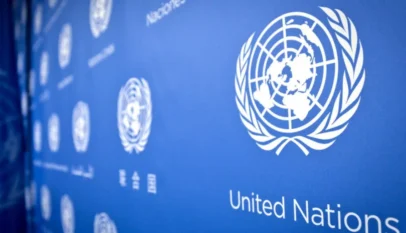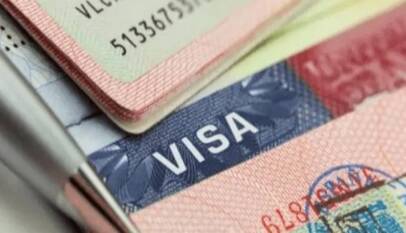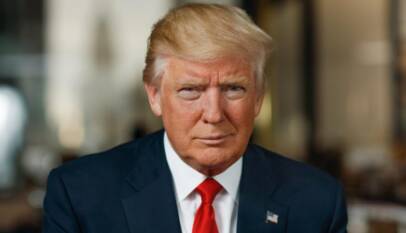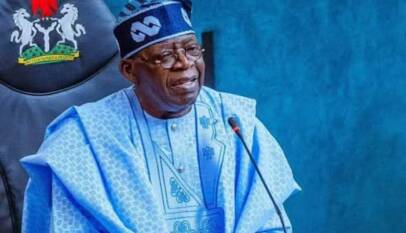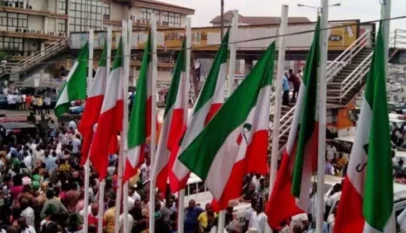
By Gabriel Efe, Guest Writer
In our previous exploration of Thrasymachus’ principle—his assertion that justice is merely the advantage of the stronger—we examined its relevance in the Nigerian context. Yet, this idea extends far beyond national borders.
In world politics, economic structures, and geopolitical conflicts, we continue to see a persistent pattern: those with power shape the definition of justice to suit their interests. Nowhere is this more evident than in the evolving roles of the United Nations, the resurgence of nationalism over globalization, and shifting power dynamics in key global conflicts, particularly the ongoing conflict in Ukraine.
The United Nations and the Dialectics of Power
The UN, founded on ideals of collective security and cooperation, ironically embodies the principle of Thrasymachus. The Security Council, the most powerful arm of the organization, is permanently controlled by five nations—the United States, China, Russia, the United Kingdom, and France—each wielding veto power. This setup raises fundamental questions: If justice is truly about fairness and equality, why do a select few determine the fate of global security? The reality is clear—the strongest players ensure that the rules reflect their interests.
This imbalance has significant consequences. Permanent members often use their veto power selectively, blocking resolutions that do not align with their strategic goals while enforcing others under the guise of maintaining peace. The recent power struggles within the UN, including calls for Security Council reform, highlight the friction between emerging powers and the entrenched elite who wish to maintain the status quo. This exposes a tension between procedural justice (fair process) and distributive justice (fair outcomes). While the UN aims for distributive justice, the structure itself often prevents it, highlighting the Thrasymachean influence on its operations.
However, some counterexamples complicate this narrative. Multilateral peacekeeping efforts, humanitarian interventions, and international legal frameworks suggest that justice is not always solely dictated by the strongest actors. Yet, these instances, while seemingly contradicting Thrasymachus’ assertion, could also be interpreted as the stronger powers strategically using ‘justice’ language to legitimize actions that ultimately serve their long-term interests, albeit indirectly.
From Globalization to Nationalism: The Shifting Paradigm
For decades, globalization was championed as the path to economic prosperity and interconnectedness. However, in recent years, nationalism has made a striking comeback, fueled by economic disparities, cultural identity crises, and geopolitical tensions. The COVID-19 pandemic accelerated this shift, as countries prioritized self-sufficiency over global cooperation. Trade wars, immigration restrictions, and policies of economic protectionism now define the policies of many major nations, reinforcing the idea that the strongest dictate the norms.
The United States, once the chief proponent of globalization, has pivoted towards policies that prioritize national interests over global partnerships. The European Union, long seen as a model of integration, faces internal fractures due to nationalist movements. Meanwhile, China’s economic rise is met with increasing resistance, as Western nations adopt protective measures under the banner of economic security. In essence, the global order is reverting to a state where power, rather than shared principles, dictates interactions.
The Ukraine-Russia Crisis: A Case Study in Thrasymachus’ Principle
The ongoing Ukraine-Russia conflict starkly underscores Thrasymachus’ principle on a global scale. Russia’s invasion, a clear act of aggression, demonstrates the power of military might in shaping the narrative. Russia justifies its actions through its definition of security and historical claims, essentially defining “justice” as what benefits its strategic interests. The West’s response, while including sanctions and aid to Ukraine, has been carefully calibrated to avoid direct military confrontation with Russia, revealing the limits of international pressure when faced with a determined power.
The conflict also showcases the agency of weaker actors. Ukraine’s fierce resistance has defied expectations and demonstrated that even without equivalent military power, a nation can leverage international support, moral suasion, and strategic communication to challenge a stronger aggressor. Weaker actors form alliances, appeal to international law, and use global institutions to constrain stronger powers.
However, even these mechanisms often function within a power-driven framework, as international law and institutions themselves are shaped by the interests of dominant players. This reinforces Thrasymachus’ principle while simultaneously showing that power can be contested through alternative means.
The Chameleonic Nature of Power and Norms
One of the most striking manifestations of Thrasymachus’ principle is the fluidity of what is considered “acceptable” in global politics and business. The norms the stronger power dictates are not static; they change as necessary to maintain dominance. Consider how international trade policies shift based on the economic interests of leading nations, or how human rights concerns are selectively raised depending on strategic alliances. The same Western nations that denounce authoritarian regimes in some cases actively support them in others when it serves their geopolitical objectives.
This chameleonic nature of power is also evident in multinational corporations, where ethical business practices are often adjusted to fit market realities. Tech giants, for example, advocate for free speech in democratic nations while complying with censorship laws in authoritarian states to maintain market access. The same principle applies in energy politics, where environmental concerns are championed until economic interests dictate otherwise.
Conclusion: A World Defined by Strength, but Not Exclusively
As Thrasymachus suggested centuries ago, the world remains significantly shaped by those who hold power. Justice—whether in governance, global conflicts, or economic policy—is often defined by the stronger party. The UN’s structural inequalities, the shift from globalization to nationalism, the geopolitical manoeuvres in Ukraine, and the fluid nature of international norms all reinforce this reality. However, the Ukraine conflict also demonstrates the agency of weaker actors and the potential for challenges to the established order.
While power remains a central factor in international relations, it is not the only factor. Ideas, alliances, and the resilience of weaker actors can, at times, constrain and influence the actions of the powerful. The struggle for a more equitable world order remains a constant negotiation between the realities of power and the enduring pursuit of justice, a contest where the voice of Thrasymachus echoes, but does not entirely define the outcome.

